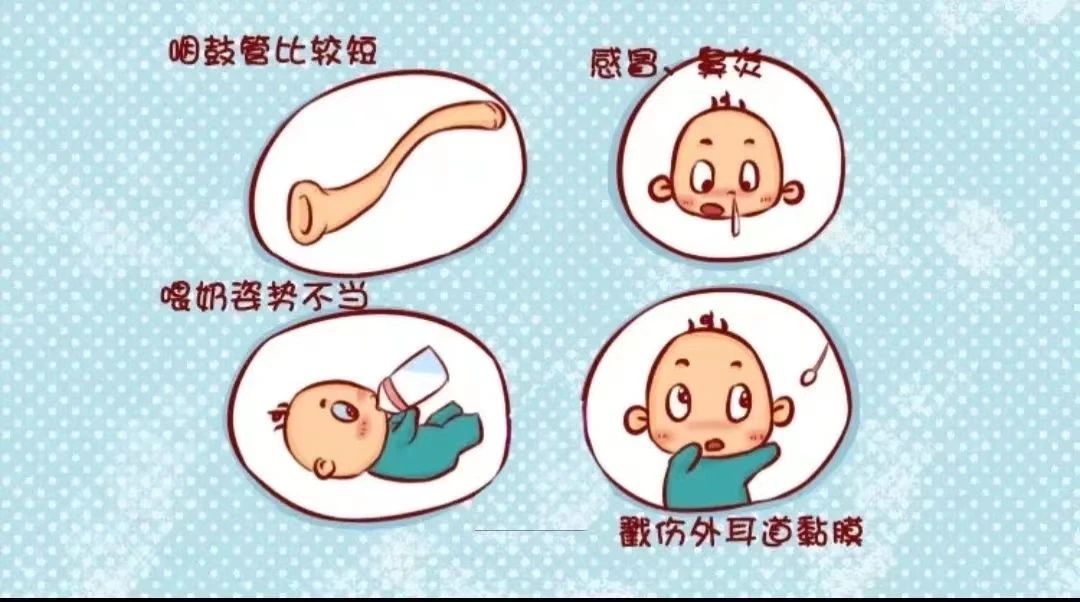- Date:2023-03-23
- Click:5155Times
“Hello, I would like to inquire. The child has been crying and scratching his ears all the time, is he not feeling well in his ears?” At 10 p.m. on March 19, Yuan Jing, a nurse from the Department of Otorhinolaryngology of Liaocheng City Second People's Hospital, received a phone call from the mother of Xiao Fei. Yuan Jing realized that Xiaofei had caught a cold in the past few days and had a fever during the day. “It should be otitis media caused by cold, don't be afraid.” Yuan Jing calmed down Xiao Fei's mother and advised her to bring Xiao Fei to the hospital the next day.
Acute otitis media is one of the common diseases in children. The middle ear is connected to the back of the nasal cavity through the Eustachian tube, which is inclined from the inside out. Children's Eustachian tubes are shorter than those of adults, with a smaller inclination and wider inner diameter, making it easier for inflammation in the pharynx to be transmitted to the middle ear through the Eustachian tubes. In addition, children have low immunity, are prone to allergic reactions, and have a higher incidence of upper respiratory tract infections, making them susceptible to acute otitis media.
“Secretory otitis media and purulent otitis media will show acute symptoms, such as pain, ear stuffiness and fever, etc. Some children will feel severe pain at night when they sleep, so they cry and scream.” Yuan Jing said that young children, in particular, can't express discomfort in words, and the manifestations of otitis media-induced crying, scratching the ears, and rubbing the ears all over the place can make adults especially nervous. Some parents confuse otitis media with colds, delaying treatment, “If left untreated, otitis media may lead to hearing damage, meningitis, facial nerve paralysis and other problems.” Although otitis media has the possibility of self-healing, Yuan Jing suggests that parents should bring their toddlers to the doctor in time. When young children show symptoms such as crying and scratching their ears at night, or when older children report that they have ear pain, stuffiness, congestion, buzzing or bubbling in the ears, or when children watch TV with the volume turned up too high as well as when they can't hear others calling out, parents should be wary of their children's ear disease and take them to the hospital for a checkup in a timely manner.
For middle ear infections in children, the antipyretic drugs acetaminophen or ibuprofen can be used to relieve pain, and then antibiotics can be used depending on the symptoms. If a tympanic membrane perforation has occurred, there will be more purulent discharge in the outer ear canal, and ear canal cleaning and ear drops will need to be given. If the child has symptoms of an upper respiratory tract infection, this should also be treated aggressively. Once treatment is complete, a follow-up examination is needed to determine if the ear has returned to health.

“Prevention of otitis media, must start from the details of life.” Yuan Jing reminds parents, usually avoid children lying down to drink milk or water, to avoid water or milk flow into the nasopharynx, increasing the risk of otitis media; usually prevent upper respiratory tract infections, active treatment of rhinitis, sinusitis, pharyngitis and other diseases, so as not to induce otitis media; blowing the nose should be the correct way, do not let the child block both sides of the nostrils to blow their noses, you should block one side of the nostril, and then blow out the other side of the nose, this will This will prevent snot from entering the middle ear.



 鲁ICP备11009722号-4
鲁ICP备11009722号-4 